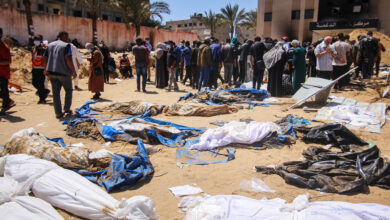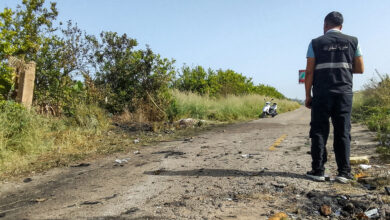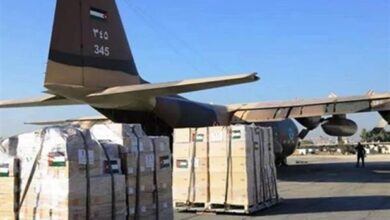Egypt’s underground steel wall on the Egyptian-Gaza border is valued at US$40 million and is due to be completed in December 2010, a US Embassy cable has revealed. The cable has been exclusively leaked to Al-Masry Al-Youm.
The wall, which the Egyptian government says is aimed at curbing smuggling between Egypt and the besieged Gaza Strip, has been shrouded in secrecy until the present.
The cable, dated 20 December 2009, was sent from the US Embassy in Cairo to the Secretary of State in Washington DC, and copied to the American Embassy in Tel Aviv, the American Consul in Jerusalem, the US Defense Department, and the White House’s National Security Council.
The cable reveals that the wall is being constructed with Egyptian government money, while a tunnel detection system is being funded and built by the United States.
In the document, the US Embassy in Cairo recognizes Egypt’s efforts to combat smuggling by installing the subterranean steel wall, which began construction in 2009, and resuming installation of a tunnel activity detection system.
“The MOD had frequently discussed this project with us since the beginning of the year, but only recently received the corrugated steel sheets,” reads the document. “It is unknown, however, if the wall will be effective at deterring smuggling in the long-run, as the steel sheets are basic construction-grade material that can be cut using a tool like a blow torch.”
The document references international, regional and local press reports that criticize the wall for representing Egyptian support for Israeli security, describing them as “erroneously stating the wall is a US-funded project.”
The document also reveals the US has provided technical support for the installation of the tunnel detection system, which was due to be finished by the US Army Corps of Engineers and handed over to the Egyptian military in April 2010.
According to the document, the US Foreign Military Financing-funded tunnel detection system has been key in detecting two to three tunnels a day.
The document mentions that prior to the installation of the system, Egypt was only capable of discovering and destroying smaller tunnels. Though Egypt's capacities have improved with the new detection system, the cable says that some flaws still remain.
“While achieving short-term success, those efforts have also clearly demonstrated long-term challenges to Egypt's capacity to combat arms smuggling. Recent damage to some of the equipment related to the tunnel detection system appears to have been intentionally inflicted, although it is unclear by whom,” says the document.
During previous visits to Sinai, local sources had told Al-Masry Al-Youm about smuggler attempts to attack the wall.
The document goes on to say that the damage of video cameras used to map tunnels was not the result of a technical failure. “It is unknown who inflicted the damage or why. The cameras were under the control of MOD's Tunnel Detection Unit, but the Border Guard Force and smugglers themselves when cameras were being operated also had access.”
The document adds that a full investigation into the damaged equipment has been requested, as well as additional security measures.
“The BTADS (Border Tunnel Activity and Detection System) system, however, is merely a tool. To be effective at counter smuggling, Egypt must use the information on tunnel locations and activity to identify and dismantle the lucrative smuggling networks,” the document adds, suggesting more efforts are required by the Egyptian side to curb smuggling activity.
The cable also mentions a request by the Egyptian Ministry of Defense for additional funding for the BTADS operations.
The document suggests that US officials have been in contact with non-official sources in Sinai, saying that “anecdotal evidence from contacts in Northern Sinai … seems to indicate that Egypt's increased efforts in Rafah and along the entrances to the Sinai peninsula have helped reduce the flow of smuggled goods through Northern Sinai.”
Smuggling has been on-going in Sinai, especially after the imposition of a coordinated Egypt-Israel blockade on Gaza. Arms smuggling in particular has been on the rise in the area, although several smugglers previously told Al-Masry Al-Youm that the activity is slowing down, especially since Gaza has been flooded with arms from other sources.



